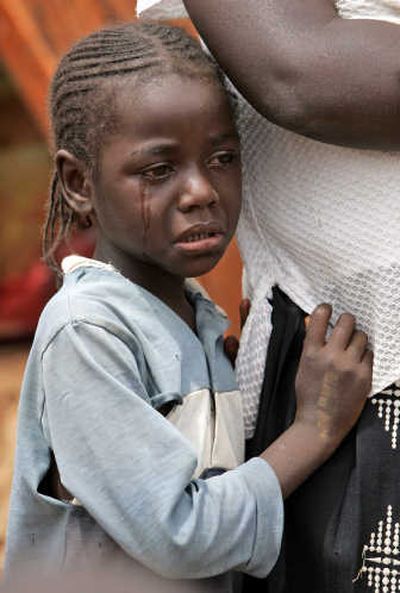Two Kenyan rivals pledge to end crisis

NAIROBI, Kenya – Kenyan President Mwai Kibaki and opposition leader Raila Odinga agreed Friday on a plan to end weeks of post-election violence that has brought this East African country to the edge of disaster.
With international pressure mounting, the death toll rising and the economy in various stages of collapse, the two leaders signed an agenda that includes a pledge to resolve the underlying political crisis within 15 days.
Former U.N. Secretary-General Kofi Annan has been mediating between the two sides to end fighting that has killed more than 800 people and displaced 300,000 since the disputed Dec. 27 election. At least nine people were killed Friday.
Meanwhile, U.N. humanitarian officials expressed alarm over the rising number of sexual assaults in the hundreds of informal camps for displaced people that now dot the Kenyan countryside.
The agreement signed Friday calls for the disarming of militias accused of ethnically based attacks in western Kenya and the opening of roads that have been blocked by demonstrators. It also requires the government to investigate charges that the police used excessive force.
Odinga’s spokesman, Salim Lone, called the deal “a real breakthrough.”
“It showed two sides with a vast difference between their position coming together to agree on something that is not central, but things that are very important,” he said.
But the political impasse between the two leaders remains.
Odinga has accused Kibaki of rigging the election, a charge bolstered by international observers who have said the tally was so flawed it is impossible to know who won. Odinga has proposed a recount or an interim power-sharing agreement until a new election can be held in one or two years.
Kibaki has rejected any proposal that implies he is not the duly-elected president, and he reiterated Friday that the dispute should be handled in court. Odinga has rejected that idea, saying the courts are stacked with Kibaki loyalists.
According to one source close to the talks, Kibaki’s government is beginning to feel pressure from the United Nations, the United States, France and countries in the region whose economies are suffering because of Kenya’s troubles. In Uganda, for instance, gasoline now costs $15 a gallon because supply routes through Kenya have been disrupted.
Mediation is to resume Monday, when the two sides will discuss humanitarian issues. Talks on the most difficult political issues will begin Wednesday.